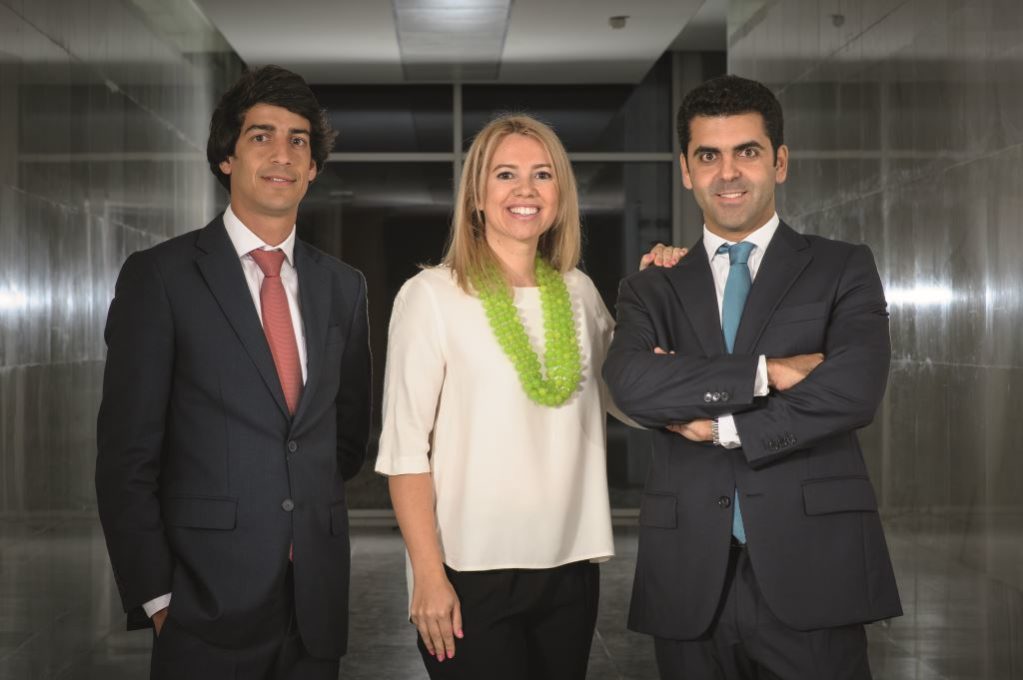It is one of the great economic stories of Africa. When Mozambique gained independence from Portugal in 1975 it was one of the world’s poorest countries. Two years later, it was even poorer in the grips of a civil war which ended in 1992.
Thirty seven years after independence, the southeast African country is booming. Joana Prata Dias Teixeira Duarte, her husband, João Alberty and his cousin Miguel, are three entrepreneurs who are taking advantage of this by putting their shoulder to the wheel in the country’s grassroots growth.
The trio, of Portuguese descent, started up Sociedade Moçambicana de Participações (SMP), based in downtown Maputo, in November.
Already SMP holds stakes in several companies from construction to furniture and media to telecommunications. Mozambique is abound with investment and business opportunities. The country’s GDP is increasing and 38% of its population lives in cities, with this number growing every day. Maputo, the capital city, has a population of 1.5 million.
For the first time in decades, Maputo’s skyline is dominated by swinging construction cranes. New buildings are going up on every corner. If Mozambique needs anything more than food and water, it is bricks and mortar. This hunger to fill Mozambique’s infrastructure gap has seen a dramatic increase in foreign investment. In 2005, foreign investment in Mozambique was worth $108 million, by 2007, this figure more than trebled to $427 million. In 2010, foreign investment stood at $789 million.
This trio of spring entrepreneurs are doing their bit to contribute to this urbanization through construction company Mozago. They have built offices for Millennium bim Bank among others.
“Mozago is our money cow,” says João Alberty.
It’s not just new buildings. João believes that there is also a lucrative market in renovating buildings. This is for posterity as well as profit.
Mozago is renovating a building by the famous Portuguese architect Pancho Miranda Guedes, who designed hundreds of buildings—hotels, schools, colleges, churches, banks, restaurants and apartments—in Mozambique between 1950 and 1974.
João believes that there is a market in renovating the buildings of Guedes. The one they are working on at the moment will be a hotel. They are also renovating a warehouse in central Maputo, on the way to the airport, which will be their new headquarters.
They provide a service where there is a demand. Alongside the construction and renovation side of the business, SMP also focuses on interiors through another branch of the company—Intersection. The company specializes in office design and furniture and represents Haworth, a worldwide office furniture company. Intersection recently designed the interior of and furnished Nestlé’s new offices in downtown Maputo and will do the same for Mimmos—a nationwide chain—at the new Zimpeto shopping mall.
Mozambique’s growth and development is the company’s playground, while it is still a young company itself, it hopes to expand just as quickly. The company is also powering up and connecting the country through Antolux, which specializes in the installation of low and medium tension power networks, where they are most needed, in the provinces. Its focus also lies in telecommunication networks and solutions.
The trio sees opportunity where others might see despair. The coastal nation is often plagued by floods through tropical cyclones, which often sees the country divided and certain cities cut off. In 2000, Mozambique was declared a disaster zone that led to a major aid operation. Many towns were submerged completely and a mother was forced to give birth in a tree above the rising flood waters.
This is one of the perennial problems of Mozambique that these entrepreneurs hope to do business by easing. Many of the country’s bridges are flimsy and poorly maintained.
Edgar Cardoso Mozambique, of which SMP now has a major stake—is a company that specializes in maintenance and rehabilitation of bridges.
Then there is media. Exame Mozambique is yet another of their ventures. This Lusophone business magazine reports on the macroeconomics of the country as well as financial issues, business ventures, investments, consumption, technology and marketing. While the brand belongs to Editora Abril, a major Brazilian publisher and printing company based in São Paulo, SMP owns the project in Mozambique. This monthly magazine, which was launched in June and recently published its fourth issue, is sold in Maputo and Portugal—a large number of Portuguese nationals still seek employment in the country.
Duarte, of Portuguese descent, was born in Mozambique and is the driving force behind the magazine as regulations says media companies can be opened by Mozambican nationals only.
The Alberty cousins had visited Mozambique, from Portugal, on many occasions, before finally making it their new home.
The company sees this investment in the media as prestige to go with the building bricks and mortar.
“We have gotten really good feedback from our readers and the CEOs of companies we have featured. It is bigger than our expectations were for it in the beginning. The people here are looking for something that we offer. We use technical information and put it in a way that everyone can understand it,” says Luis Leitão, editor of Exame Mozambique.
João says that the magazine is forward looking and very deliberately chooses to cover the success of businesses.
“We are perceived by the readers and other businesses in a positive way,” he says.
As Meticais changes hands with the rise of their current enterprises, there is another new company in the making. João said it has got nothing to do with the other ventures and hinted that it is related to the beauty and wellbeing sector.
When Duarte isn’t doing business, she is trying her hand at golf. According to João, her mother’s side of the family has quite a reputation at the Maputo golf course where their trophies are on display. Duarte wants to maintain that proud tradition.
On the golf course trophies are the reward for Duarte reducing her handicap. In the business world contracts are the reward for her part in helping to rebuild the country of her birth.
